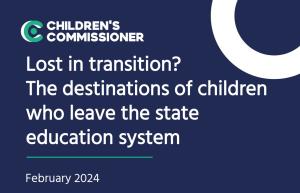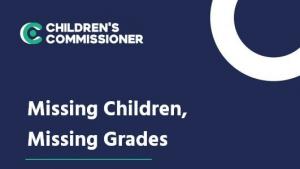As Children’s Commissioner, I have visited hundreds of children from across the country and spoken to them about their hopes, dreams, and aspirations. While many children talk to me about how to improve childhood, they also talk about their visions for the future. Through these conversations, I have seen the sheer scale of ambition this generation holds.
In my visits, I have met future entrepreneurs, social workers, lawyers, pilots. No matter where I am or who I am speaking to, children continue to tell me that they are hopeful for adulthood. The vast majority say that they believe they’ll be better off than their parents. They believe that if they work hard, they can achieve success in life.
This is just as true when I speak to children in alternative provision. Despite having struggled in mainstream schools, these children tell me that they see the importance of education. They understand the value of working hard and many are desperate for the chance to have a real job.
However, despite the same strength of ambition, the post-16 outcomes for this group of children are not as good as those of their peers in mainstream schools. Nearly a third (29%) of children in alternative provision did not sustain a positive destination after leaving in Year 11. This compares to 5.2% of children from mainstream schools who did not sustain a positive destination.
In this report, I examine the reasons behind this disparity. My research shows that children in alternative provision are deeply ambitious and see getting a good job or career as a priority. However, often they are not given the support they need to succeed.
Children in alternative provision often have lower levels of self-belief by the time that they arrive in alternative provision. They often have experienced a disrupted education and arrive in alternative provision in Key Stage 4, with very little time for catch up. Sadly, many are battling issues in their personal lives that makes it more difficult for them to engage with education.
As this report shows, this group of children also do not have access to the same resources or opportunities as children in mainstream schools. It’s often much harder to arrange work experience placements or to source appropriate careers provision. While many would benefit from extended support beyond Year 11, this is often beyond the capacity of what an alternative provision school can provide.
There is much more to do to level the playing field and to ensure that children in alternative provision have access to the same opportunities as their peers in mainstream schools. These children are every bit as ambitious for their future as other children. It is up to us as adults to match that ambition. This report outlines a plan to ensure that every child in alternative provision is given the advice, guidance, and opportunities they need to thrive.





